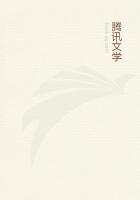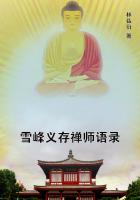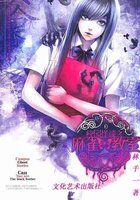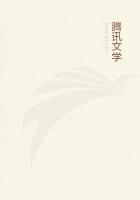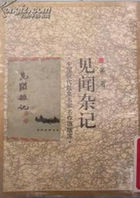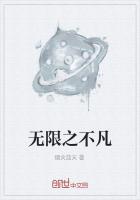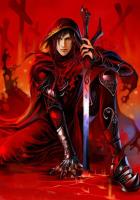Instinct and ThoughtYoung Man.It is odious.Those drunken theories of yours, advanced a while ago--concerning the rat and all that--strip Man bare of all his dignities, grandeurs, sublimities.
Old Man.He hasn't any to strip--they are shams, stolen clothes.He claims credits which belong solely to his Maker.
Y.M.But you have no right to put him on a level with a rat.
O.M.I don't--morally.That would not be fair to the rat.
The rat is well above him, there.
Y.M.Are you joking?
O.M.No, I am not.
Y.M.Then what do you mean?
O.M.That comes under the head of the Moral Sense.It is a large question.Let us finish with what we are about now, before we take it up.
Y.M.Very well.You have seemed to concede that you place Man and the rat on A level.What is it? The intellectual?
O.M.In form--not a degree.
Y.M.Explain.
O.M.I think that the rat's mind and the man's mind are the same machine, but of unequal capacities--like yours and Edison's;like the African pygmy's and Homer's; like the Bushman's and Bismarck's.
Y.M.How are you going to make that out, when the lower animals have no mental quality but instinct, while man possesses reason?
O.M.What is instinct?
Y.M.It is merely unthinking and mechanical exercise of inherited habit.
O.M.What originated the habit?
Y.M.The first animal started it, its descendants have inherited it.
O.M.How did the first one come to start it?
Y.M.I don't know; but it didn't THINK it out.
O.M.How do you know it didn't?
Y.M.Well--I have a right to suppose it didn't, anyway.
O.M.I don't believe you have.What is thought?
Y.M.I know what you call it: the mechanical and automatic putting together of impressions received from outside, and drawing an inference from them.
O.M.Very good.Now my idea of the meaningless term "instinct" is, that it is merely PETRIFIED THOUGHT; solidified and made inanimate by habit; thought which was once alive and awake, but it become unconscious--walks in its sleep, so to speak.
Y.M.Illustrate it.
O.M.Take a herd of cows, feeding in a pasture.Their heads are all turned in one direction.They do that instinctively; they gain nothing by it, they have no reason for it, they don't know why they do it.It is an inherited habit which was originally thought--that is to say, observation of an exterior fact, and a valuable inference drawn from that observation and confirmed by experience.The original wild ox noticed that with the wind in his favor he could smell his enemy in time to escape; then he inferred that it was worth while to keep his nose to the wind.That is the process which man calls reasoning.Man's thought-machine works just like the other animals', but it is a better one and more Edisonian.Man, in the ox's place, would go further, reason wider: he would face part of the herd the other way and protect both front and rear.
Y.M.Did you stay the term instinct is meaningless?
O.M.I think it is a bastard word.I think it confuses us;for as a rule it applies itself to habits and impulses which had a far-off origin in thought, and now and then breaks the rule and applies itself to habits which can hardly claim a thought-origin.
Y.M.Give an instance.
O.M.Well, in putting on trousers a man always inserts the same old leg first--never the other one.There is no advantage in that, and no sense in it.All men do it, yet no man thought it out and adopted it of set purpose, I imagine.But it is a habit which is transmitted, no doubt, and will continue to be transmitted.
Y.M.Can you prove that the habit exists?
O.M.You can prove it, if you doubt.If you will take a man to a clothing-store and watch him try on a dozen pairs of trousers, you will see.
Y.M.The cow illustration is not--
O.M.Sufficient to show that a dumb animal's mental machine is just the same as a man's and its reasoning processes the same?
I will illustrate further.If you should hand Mr.Edison a box which you caused to fly open by some concealed device he would infer a spring, and would hunt for it and find it.Now an uncle of mine had an old horse who used to get into the closed lot where the corn-crib was and dishonestly take the corn.I got the punishment myself, as it was supposed that I had heedlessly failed to insert the wooden pin which kept the gate closed.
These persistent punishments fatigued me; they also caused me to infer the existence of a culprit, somewhere; so I hid myself and watched the gate.Presently the horse came and pulled the pin out with his teeth and went in.Nobody taught him that; he had observed--then thought it out for himself.His process did not differ from Edison's; he put this and that together and drew an inference--and the peg, too; but I made him sweat for it.
Y.M.It has something of the seeming of thought about it.
Still it is not very elaborate.Enlarge.
O.M.Suppose Mr.Edison has been enjoying some one's hospitalities.He comes again by and by, and the house is vacant.He infers that his host has moved.A while afterward, in another town, he sees the man enter a house; he infers that that is the new home, and follows to inquire.Here, now, is the experience of a gull, as related by a naturalist.The scene is a Scotch fishing village where the gulls were kindly treated.This particular gull visited a cottage; was fed; came next day and was fed again; came into the house, next time, and ate with the family; kept on doing this almost daily, thereafter.But, once the gull was away on a journey for a few days, and when it returned the house was vacant.Its friends had removed to a village three miles distant.Several months later it saw the head of the family on the street there, followed him home, entered the house without excuse or apology, and became a daily guest again.Gulls do not rank high mentally, but this one had memory and the reasoning faculty, you see, and applied them Edisonially.
Y.M.Yet it was not an Edison and couldn't be developed into one.
O.M.Perhaps not.Could you?
Y.M.That is neither here nor there.Go on.

